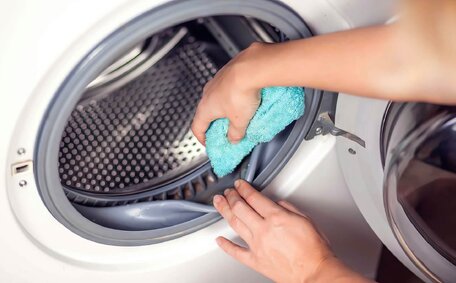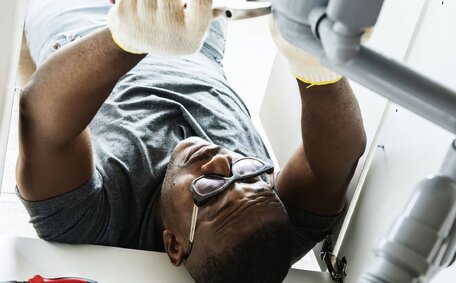Understanding When to Call an Emergency Plumber
Understanding the right moment to call an emergency plumber is vital to averting additional damage and expensive repairs. Some scenarios require urgent action:
- Burst pipes or water leaks - Even a minor water leak can cause significant water damage or mould if disregarded. A burst pipe can flood your house rapidly.
- No hot water - For those residing in the eastern suburbs, if you’ve got a defective hot water heater depriving you of hot water, it poses more than just inconvenience but serious health risks as well. It’s essential to know when to call plumber; do so immediately when you need hot water and find yourself without it.
- Gas leaks - A gas leak can be extremely hazardous. If you smell gas or your gas appliance is malfunctioning, shut off the gas line and call for emergency service.
- Backed-up sewer line - A clogged sewer line can overflow, compelling you to call emergency plumber services as raw sewage invades your house. This toxic spill needs immediate containment and cleaning.
- Low water pressure - Persistently low water pressure could mean your pipes can be frozen or fractured, indeed a serious concern requiring your local plumber’s expertise.
Persistent damp spots, gurgling drains or sinks, and a distinctive sulphuric smell from hot water demand immediate emergency plumbing intervention. In a 24-hour emergency plumbing situation where the severity of the issue is unclear, it’s crucial to promptly contact our emergency plumbing services. Our Sydney emergency plumbing team, available 24/7, is prepared to assess and resolve issues before they worsen.
Common Plumbing Emergency Situations
Blocked Drains
Blocked drains, a frequent occurrence, represent a common plumbing challenge.
Signs that perhaps your drains, or even a blocked toilet, may need professional attention include water pooling around them, gurgling sounds, slow drainage, or unpleasant odours. Blockages can stem from an accumulation of hair, grease, tree roots, or other debris. Immediately stop using the drain and consider a professional drain cleaning service to remove the blockage.
Burst Pipes
Burst pipes, similar to hot water tank failures, can occur without warning and may quickly cause extensive flooding. Should your hot water heater fail or pipes burst due to factors like weather changes, corrosion or pressure buildup, it’s time to call a Sydney emergency plumber the community trusts soon possible. As a temporary fix, shut off the water valve for the burst pipe.
In the Newcastle Lake Macquarie area, contact an emergency plumber for same-day inspections and repairs, thus preventing extensive water damage.
Faulty Hot Water Systems
Significant plumbing issues such as a lack of water, hot water system malfunctions, discoloured or foul-smelling water, and ongoing leaks, require prompt professional intervention. For safety, turn off access to hot water and then reach out to our team for troubleshooting of thermostats, elements, valves, or to pinpoint leaks.
Gas Leaks
If you detect a gas odour or hissing sounds from appliances, it may indicate a gas leak. Evacuate from the site of your emergency leak, don’t use any electrical switches, leave doors/windows open, and call the fire department and plumber from outside. Our technicians offer phone guidance and can identify and fix leak sources to prevent hazards such as explosions, suffocation, or carbon monoxide exposure.
Preparing for the Plumber’s Arrival
To prepare for the emergency plumber’s visit, consider these steps to facilitate swift repairs:
Ensure Clear Access
Clear a pathway from the problem site to the main shut-off valve for easy plumber access upon arrival. Eliminate any clutter or furniture blocking the way, ensuring the plumber can swiftly access and resolve any plumbing issues.
Locate the Main Shut-Off Valve
Find and label your main water shut-off valve, typically near the water metre or your water tank, so you can promptly address any plumbing problem with professional assistance. Familiarise yourself with the main shut-off valve to turn off the water supply if the plumber instructs you to do so.
Stay Safe
Always ensure family members and pets are clear of the plumbing emergency area until professionals resolve the issue. Place buckets to catch leaks and leave the affected areas untouched before the plumber’s inspection.
Such preparatory steps contribute to the efficient, swift resolution of emergencies by plumbing professionals. Our technicians are always ready, with fully equipped vans, to handle common plumbing emergencies promptly. Still, having accurate details about the problem and site access can help them restore functioning plumbing as soon as possible.
The very professional technician will introduce themselves, present their licence and qualifications, and explain their hourly rates and potential service charges upfront.
They’ll ask for problem details—location, initial signs, and any recent alterations. Next, the plumber who arrives will evaluate the site, checking pipe layouts, drainage plans, water supply lines, and so on to diagnose the cause. Once identified, your emergency plumber will discuss suitable repair options and provide a written quote for approval.
We encourage customers to ask questions about the issue, possible solutions, costs, and timelines throughout the process. Recommended plumbers prioritise transparency and customer education, ensuring emergencies are resolved both promptly and efficiently.
Emergency Diagnosis and Repair Procedures
When our emergency plumbers came out to your home, their top priority is swiftly and accurately diagnosing the issue to minimise damage. They utilise specialised tools like thermal imaging cameras, pipe inspection cameras, and leak detection devices to identify problems that require next day follow-up.
For emergency water leaks, at any time, they’ll examine your pipe layouts to isolate and mend any ruptured sections or weakened joints. Faulty taps, valves or even a compromised plumbing pipe can often be fixed on the spot following a thorough diagnosis. Technicians might dismantle systems for hot water or drainage issues to inspect heating elements and drainage lines.
Average emergency repair times:
- Replace burst pipe section - 1-2 hours
- Repair minor leak - 30 mins - 1 hour
- Clear clogged drains - 1-1.5 hours
- Replace faulty tapware - 1-2 hours
- Repair water heater element - 1-3 hours
Plumbers prioritise securing the area to curb water waste and mitigate damage while waiting for replacement parts. This action stops water wastage, potentially lowering your water bills, and limits damage until full repairs can occur. Our skilled plumbers, equipped with comprehensive toolkits, swiftly resolve common problems, working diligently to repair and safeguard against potential damage to your plumbing systems.
Temporary Fixes vs Permanent Repairs
Temporary Fixes
Temporary fixes aim to quickly stabilise emergency plumbing situations. Common examples include:
- Capping or patching leaks
- Draining flooded areas
- Clearing blockages
- Shutting off main water gas valves
While not comprehensive solutions, we suggest these measures to immediately halt water flow, contain contamination risks, and restore basic functions. Temporary patch jobs help plumbers mitigate damage before executing permanent repairs.
Permanent Repairs
For complete resolutions, plumbers follow up with appropriate permanent repairs, such as:
- Re-routing damaged pipe sections
- Installing new drains
- Replacing broken fixtures/appliances
- Upgrading outdated systems
Permanent repairs aim to tackle the root causes of issues while upgrading systems to prevent future incidents. Such repairs involve thorough diagnostics to pinpoint and address the foundational issues causing the emergency.
In summary, emergency plumbers utilise a systematic approach of temporary containment followed by tailored permanent repairs to efficiently restore safe, reliable plumbing operations.
Regular Maintenance
Performing regular plumbing maintenance is key to preventing issues. This involves:
Flushing your water heaters to eradicate sedimentChecking water pressure and flow for adequacyTesting safety valves on gas and water linesWe’re very happy when homeowners proactively engage in maintenance, significantly reducing emergency risk and extending their plumbing’s lifespan.
Upgrade Outdated Systems
Replacing worn fixtures, appliances and pipe materials with modern, durable options can lead to enhanced longevity and help in the prevention of breakdowns, best actioned with your local plumber’s expertise. Consult with your local skilled plumber for advice on suitable upgrades to proactively enhance system reliability.
Install Protective Devices
Consider fitting burst pipe valves, overflow alarms, temperature and leak sensors connected to main supply lines with the help of your local plumber. These devices automatically shut off water when need arises upon detecting abnormalities, thus preventing flood damage.
Enquire about our preventative Care Plans for scheduled maintenance at discounted rates. Investing in proactive maintenance substantially reduces your water bill and long-term costs, providing you with peace of mind through steadfast plumbing.
Preventing Future Plumbing Emergencies
There are several preventative measures homeowners can take to help avoid plumbing emergencies:
Annually inspecting your pipes and joints for any signs of compromise, to ensure they remain in peak conditionClearing drains to circumvent clogs and backups, effectively catering to all your plumbing needs promptly




